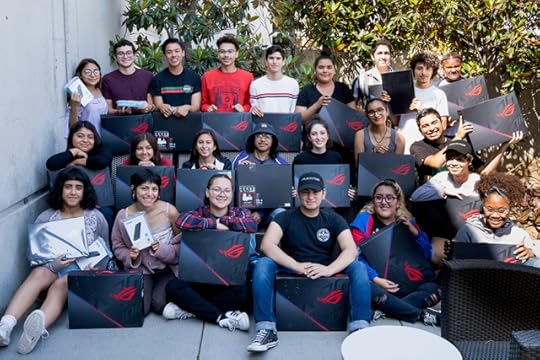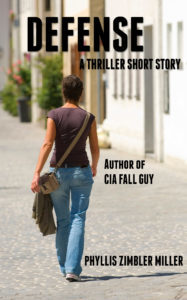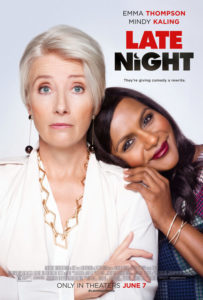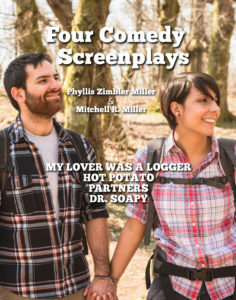Phyllis Zimbler Miller's Blog: Phyllis Zimbler Miller Author, page 3
December 25, 2019
Beware of Social Media Disrupting Family Harmony
A friend of mine told me her New York City adult daughter was very upset when she discovered from an Instagram photo that her brother and his wife had been in New York without contacting her. The same friend had gotten an angry response from a first cousin in Germany who discovered, after the same adult daughter posted information on Facebook, that my friend and her husband had been in Europe without stopping off to see the first cousin.
The family harmony lesson in both cases is clear:
If you do not want people to know what you are legitimately doing, do not post the information on social media. Chances are those people will see the posted information.
That’s why I caution people to make a distinction between sharing personal and private information online.
Personal can be information that interests you — such as retweeting information of a public service nature. For example, I often retweet from the Twitter accounts of the documentary WHO WILL WRITE OUR HISTORY (@writeourhistory) and the nonprofit FILM2FUTURE (@Film2future).
Private information can be personal details such as you’re away from your home for an extended period (possibly alerting unscrupulous people that your home may be empty) or posting your phone number in a public forum.
In my three HOW TO SUCCEED books for teens and young adults — the first page of each book is devoted to warning young people to never put anything online that could be harmful to themselves — NO MATTER HOW SECURE THEY THINK THE INFORMATION IS.
This is an important warning for job and college applications as well as to hopefully protect yourself against scams. A friend recently got a phone call purporting to be from her grandson in New York. While some of the details were correct, the use of the word “Grandma” when that is not what she is called by the grandson was an immediate tip-off to a scam attempt.
Social media can be a wonderful addition to our lives — making us aware of so many interesting things we might not otherwise know — but, as with most things in life, it needs to be utilized with a big heaping serving of common sense.
In 2020 I hope we all use social media for good — and avoid hurting the feelings of our family members by thoughtlessly posting information we don’t wish them to know. Alternatively, tell your family members when you’re going to be in their city!
December 4, 2019
Honoring My 95-Year-Old Parents: Early Computer Pioneers
My parents Albert and Ruth Zimbler both turned 95 in November 2019 (birthdays three days apart and married 73 years). To honor this milestone, my family created the ALBERT AND RUTH ZIMBLER TECHNOLOGY FUND for software and hardware for the Los Angeles underserved high school students participating in the nonprofit Film2Future.com program.
As Rachel Miller, founder of Film2Future.com and granddaughter of Albert and Ruth, explains, “Of the high school students who participate in the program, 40% come from homes where there is no computer. It is very difficult to take part in the entertainment industry without easy access to a computer.”
What I’d like to share in this blog post is why this technology fund is so fitting: Albert and Ruth were very early pioneers in utilizing computers in business.
Here’s the story:
Albert was a CPA in the small town of Elgin, Illinois who did weekly payroll “by hand” for a client who owned several Swedish smorgasbord restaurants. Ruth’s maternal first cousin Nathan Lieberman had invented the ABLE paper-punched computer accounting program to do payrolls. Albert bought a second-hand Royal computer for $40,000 — large as a dining room credenza — to do the payrolls, although the computer then sat unused in one smorgasbord restaurant in Arlington Heights, Illinois.
In early 1970 my husband Mitch and I, newly married, were awaiting orders for Mitch to go on active duty with the U.S Army after being in R.O.T.C. at Michigan State University. Mitch had taken one computer course at college that consisted of card-punched input.
Mitch left his job as a copywriter for a Chicago advertising agency, had the computer moved to my father’s accounting office in Elgin, and accompanied by me drove down to Evansville, Indiana to learn from Cousin Nathan how to use the ABLE accounting program.
Mitch then set up the program and ran it until he (and I) reported to Ft. Knox, Kentucky in May 1970 for Mitch to attend Armor Officers Basic (a fictionalized version of these nine weeks can be read in my Amazon Breakthrough Novel Award semifinalist MRS. LIEUTENANT).
My younger brother Jay, home from the University of Michigan, took over that summer and, when he returned to college, Ruth — trained as an R.N. at Mount Sinai Hospital in Chicago during WWII — became head of the computer operation.
This is why it is so fitting that the Film2Future.com fund in Albert and Ruth’s honor be one of technology to provide software and hardware to underserved high school students.
Nathan Lieberman’s ABLE computer program significantly improved my father’s CPA practice — and it is hoped that the software and hardware gifted to Film2Future.com students help significantly improve their lives.
If this true story inspired you, please donate to the ALBERT AND RUTH ZIMBLER TECHNOLOGY FUND at Film2Future.com to provide software and hardware to Los Angeles underserved high school students.
 Film2Future.com graduating class in July 2019 — each with gift of laptop and software from a generous donor.
Film2Future.com graduating class in July 2019 — each with gift of laptop and software from a generous donor.November 26, 2019
Thanksgiving 2019: Gratitude for Democracy in the U.S.

As a former print newspaper journalist, I am definitely in favor of the freedom of speech we have in the United States even when that speech is hateful. Yet I am even more in favor of people standing up to hate speech.
A heart-warming example of people standing up to hate speech occurred this week of November 2019 in the U.K. as reported in an Evening Standard article by Rebecca Speare-Cole:
A Muslim woman who has been hailed a ‘hero’ for confronting a man hurling anti-Semitic abuse at Jewish children on the London Underground said she “wouldn’t hesitate to do it again”.Asma Shuweikh, from London, stepped in when a man began reading anti-Jewish bible passages to two young boys in skullcaps while they were travelling with their family on the Northern Line.
The shocking incident was captured on camera by fellow passenger Chris Atkins who then shared the footage on social media.
What’s equally interesting about the article is this part:
The mother-of-two said she wished more people on the Tube had stood up the man when he started being aggressive towards the young family.
“I would have loved more people to come up and say something, because if everyone did, I do not think it would have escalated in the way that it did,” Mrs Shuweikh said.
On Thanksgiving this year we can all ponder this question:
In the United States where freedom of speech is an important right, do we individually stand up to people who misuse that freedom?
And freedom of speech can cut both ways as Daniel Payne points out in the November 25, 2019, Wall Street Journal opinion piece “There’s No Safe Space for Ideas on Campus ‘Animal Farms’: Zealous student activists find ways to punish those who make them think uncomfortable thoughts”:
Most Americans know that higher education has for several decades been in the grip of a deeply intolerant, fanatical and uncompromising strain of progressive activism. Students and sometimes even faculty members regularly chase heterodox speakers off campus, demand complete fealty from terrified campus bureaucracies, and denounce and destroy each other over the slightest and most inconsequential ideological deviations. The environment isn’t unlike George Orwell’s “Animal Farm,” a place where “no one dared speak his mind, when fierce, growling dogs roamed everywhere, and when you had to watch your comrades torn to pieces after confessing to shocking crimes.”
Yet an even more intolerant brand of campus activism is taking shape. This rising political philosophy isn’t merely allergic to dissenting ideas but is opposed even to ideas about dissenting ideas. It’s a bit like the concept of metacognition in reverse: These activists, gripped by zealotry and inflexible dogmatism, are taking pains to avoid even thinking about thoughts with which they disagree.
Consider a recent controversy at Washington College in Maryland. Students there successfully lobbied to shut down a campus production of a play just one day before it was set to open.
The aggrieved students were upset that the play, Larry Shue’s “The Foreigner,” depicts the evil antics of the Ku Klux Klan. But the play doesn’t show Klan members in a sympathetic light—on the contrary, they’re the villains of the piece, and they get their comeuppance in the end. Yet students were deeply upset by the Klan costumes the actors would wear, so the play had to go. (The theater department was “unable to find a satisfactory compromise” with the student activists, a campus official dryly noted.)
The example of shutting down such a play on a college campus is particularly upsetting to me. I believe live theater can be a very powerful way for people to understand the dangerous consequences of hate. And this is why Susan Chodakiewitz and I have co-founded the THIN EDGE OF THE WEDGE project — “Educating Through Theater of the Dangerous Consequences of Anti-Semitism and Racism.”
While we enjoy our Thanksgiving dinners (and football games if you’re a football fan), we also need to spend time reflecting on the democratic rights we have in the U.S. — and what we can individually do to ensure that these rights remain.
See www.ThinEdgeOfTheWedgeProject.com for information on the free theater project for schools to combat anti-Semitism and racism.
November 18, 2019
American Education Week 2019: Educating Through Theater of the Dangerous Consequences of Anti-Semitism and Racism
— Nelson Mandela
Education is the most powerful weapon which you can use to change the world.
On November 10, 2019, the anniversary of Kristallnacht — the night of November 9-10, 1938, during which the Nazis burned synagogues and Jewish businesses in Germany and Austria, arresting many Jews and sending them to concentration camps — my co-producer Susan Chodakiewitz and I launched our free theater project THIN EDGE OF THE WEDGE for schools to combat anti-Semitism and racism.
Definition of “thin edge of the wedge”:
A minor change that starts a chain of more and more changes resulting in dangerous consequences.
The THIN EDGE OF THE WEDGE project has two main goals:
Educate students about the history of the Holocaust, including how the majority of people in Germany and Austria did not protest the first curtailment of civil rights by the Nazis, nor the second, nor the next, nor the next until it was too late. Germany invaded Poland on September 1, 1939, starting WWII and murdering 6 million Jews and millions of other innocents considered “undesirable.”
Utilize role play to encourage students in acquiring the skills of critical thinking. These skills can assist them today in taking an active role in resisting the wrongs around them before it is too late.
While the slogan NEVER AGAIN has been used since the end of WWII in connection to the Nazis’ mass genocide of the Jews, recent events in the U.S. and Europe have demonstrated a dramatic increase in anti-Semitic and racial hate crimes. This is more than the thin edge of the wedge inserted into the fabric of democratic societies. The widening of the wedge has already reached levels that may be very difficult to turn back.
As individuals it may seem that we have very little power to stop anti-Semitic and racial hate crimes. Yet if we all ignore what is happening around us, we may be subjecting our children and grandchildren to a world too horrid to contemplate.
Then they came for me — and there was no one left to speak for me.
— Martin Niemoeller, German Lutheran pastor
If you want to utilize education to change the world, share the information about our free theater project for schools. Questions? Email thinedgeofthewedgeproject@gmail.com
 Share this flyer with schools and other organizations that can benefit from this free project.
Share this flyer with schools and other organizations that can benefit from this free project.
November 5, 2019
Reflections on the Compelling Anti-Hate Satire Film JOJO RABBIT
The film is written and directed by Taika Waititi based on the book CAGING SKIES by Christine Leunens (available on Amazon). The acting, especially by Roman Griffin Davis as the 10-year-old boy, is outstanding.
My only concerns with the film are these:
The film’s viewers are probably NOT people who engage in hate against the “other” so the film may be preaching to the choir as the expression goes.
Once a viewer finishes seeing the film, there is no call to action as to what each individual can do to combat vicious and useless hate.
This is why Susan Chodakiewitz and I are working so hard on our THIN EDGE OF THE WEDGE theater project for schools. By offering for free a play written for students (including college students) to perform for their schools, we hope to encourage discussions around anti-Semitism and racism. (See sample discussion questions.)
Read the THIN EDGE OF THE WEDGE script of the play excerpts and contact the THIN EDGE OF THE WEDGE project if you are interested in the entire script.
October 20, 2019
Adolescents and Young Adults Ages 15 to 24 in the U.S. Are Contracting STDs at an Alarming Pace
Jo Craven McGinty’s October 18, 2019, Wall Street Journal article “Public-Health Puzzle: Young People Having Less Sex, Contracting More STDs” presents alarming information based on findings that are part of the annual Sexually Transmitted Disease Surveillance Report published last week by the U.S. Centers for Disease Control and Prevention :
Last year, combined cases of syphilis, gonorrhea and chlamydia reached an all-time high with half the reported infections occurring in adolescents and young adults ages 15 to 24.
Now if you read the above paragraph and say to yourself — “There are medical treatments that can deal with STDs” — read this next quote from the article (boldface mine) and pay particular attention to the mention of infertility:
According to estimates by the CDC, one in four sexually active adolescent girls has chlamydia or some other STD, and up to 80% of all girls and women who have chlamydia, a disease that can cause infertility, show no symptoms. Based on the number of reported cases, it’s the No. 1 notifiable disease in the country, and because of its continuing prevalence, the CDC considers it to be endemic.
Why am I again writing on this topic on a writer’s blog?
Because of my interest in #SaferSexInFiction — as explained in my Writer’s Digest website guest article — “Why Writers Should Consider Including Safer Sex in Fiction” — and my more recent article on this blog “Writers Practicing Safer Sex in Fiction.”
Given that most of us aren’t in a position to deal in a “boots on the ground” way with reducing STDs among adolescents and young adults, please join with me in motivating those who depict sexual encounters in film, TV and novels to do so in a way that encourages safer sex practices.
And do share this post on social media with the hashtag #SaferSexInFiction.
August 26, 2019
Writers Practicing Safer Sex in Fiction
I have just reread Erica Jong’s 1973 novel FEAR OF FLYING. The novel, a seminal book for women’s feelings about sex written by a woman, does not cover one concern that the anxiety-ridden protagonist, Isadora Wing, did not worry about at that time – AIDS.
And while the need for safer sex has been part of the public conscious for many years now, we writers have a responsibility to keep the need in front of new and old generations by including references in our fiction whether for print or screen.
Here’s a perfect example of a missed opportunity to remind teens of the need for safer sex without resorting to preaching:
The CW teen series ALL AMERICAN (yes, I just binged the entire first season on Netflix) has Los Angeles teens engaging in sex. I didn’t see or hear one reference for the need to use condoms to protect against STDs, yet STDs have been skyrocketing in Los Angeles County.
What can we as writers do to encourage safer sex behavior?
Include safer sex references in our writing – it’s as simple as that. And the best part is that, instead of being awkward, well-written references can add to character portrayal.
Here’s an example for a lighthearted novel or film:
Elena peered at the bulge in Jason’s tight jeans. “If your friend is planning to come out and play, I hope it brought along its own umbrella. Otherwise our play date will have to be postponed.”
Yes, this is corny, although it does demonstrate that there are ways of not saying the word “condom” (if you would prefer not to use the word) and still get the point across of practicing safer sex.
So, writers, just as you hopefully practice safer sex in real life, also practice safer sex in your fiction!
July 25, 2019
“Keeping an Eye” on Europe

While we Americans may understandably be focused on political events in our own country, it is important to also “keep an eye” on events in Europe whose impact sooner or later may spill over into our lives. And, no, I’m not talking about Brexit and the new U.K. prime minister.
I am talking about events happening in European countries that have historically started wars. And I am also talking about cause-inspired violence that, if left unchecked,can have disastrous consequences.
In addition, having been stationed with my U.S. Army officer husband in Munich many years ago, I am always aware that the U.S. today still has military personnel and their families stationed in Germany and other places in Europe. True, the military personnel and dependents (family members) probably do not have the same security presentations we had that focused on topics such as:
how to be prepared to evacuate if the Russians invaded from East Germany
how to recognize and report Soviet spies
Yet American vigilance for the safety of military personnel and dependents in Europe as well as other Americans must continue to be on high alert. And the U.S. must work with its current partners such as Germany to maintain the safety of Americans in Europe.
Fiction can serve an important role in reminding us of the need for this vigilance. And in this vein I’ve just published the Kindle thriller short story DEFENSE (99 cents or free with a Kindle Unlimited subscription) that begins:
I. Frankfurt, Germany – International Air Terminal
Jane Meyerson shifted her carry-on bag from her right to her left shoulder, causing her to accidentally bump into the Lufthansa passenger in front of her in the security line.
She eyed the attractive African-American man wearing a well-tailored sports coat and pressed pants. He appeared close to her own age – mid-thirties.
Flashing her most charming smile, Jane said, “Enschultigung Sie mir.”
The man smiled at her and said, “American?”
“Did my atrocious German accent give me away?”
“The way you stand. I can always spot a fellow American even before I hear the person speak.”
Jane nodded. “I’m working on my ability to scare away the men when I get to Nice.”
Jane felt the man’s eyes sweep over her trim figure and blond hair. “Good skill to have,” he said.
Just then Jane’s bag slipped from her shoulder. The man reached to help her grab it and their hands touched.
Moments later they reached the head of the line and, after showing their passports and boarding passes, were directed to different security conveyor belts.
Twenty minutes later Jane sipped tea at a café bar as she appeared to wait for her flight. She watched the man from the security line enter the café bar and stride toward the bar counter. She overheard him say “Kaffee, bitte” as he handed Euros to the server. Then he said in English, “It looks like there’s going to be a storm.”
In the next instant Jane jumped out of her seat, her tea abandoned.
She entered the women’s restroom and surveyed the other occupants before entering a stall at the far end from the door.
A few minutes later she exited the restroom, no longer wearing her pantsuit. Now she wore the clothes of a matronly German woman, complete with feather-topped hat under which most of her hair had been pinned.
Even her gait was different as she slowly walked to an unused waiting lounge. There she ducked behind the counter and tapped into the Lufthansa ticket counter terminal.
Ten minutes later Jane arrived at the gate for a flight to Rome, dressed now in her original outfit. Midway in the line of the people boarding the plane stood the man she had bumped into earlier. His eyes and hers met. He appeared to be indicating a dark-skinned young man at the end of the boarding line.
Jane got in line behind the indicated man. As the man moved forward, Jane’s carry-on bag again started to fall from her shoulder. Jane reached for her bag, knocking over the man’s rolling suitcase.
The man swiveled toward her with anger in his eyes, although Jane smiled at him. “Enschultigung Sie mir. Do you speak English? I must apologize.”
The man’s right hand darted into his pants pocket. In a flash Jane twisted that arm into a hammerlock. “You won’t find this flight to Rome so comfortable,” she said. “Let me make other arrangements for you.”
Before the man could speak she frogmarched him out of line. Her carry-on bag and his suitcase remained behind.
The man with whom Jane had eye contact dropped out of his place in line and retrieved the discarded luggage.
I hope you’ll enjoy this thriller short story DEFENSE. (It will be FREE on Kindle from July 29 to August 2, 2019.) And I also hope that you’ll “keep an eye” on what’s happening in Europe.
June 18, 2019
Mindy Kaling’s New Movie LATE NIGHT Showcases Strong Professional Women

It’s not hard to decide what, in my opinion, is the best part of Mindy Kaling’s new comedy movie LATE NIGHT. While the script written by Kaling and the acting by leads Kaling and Emma Thompson are great, for me the best part was that both Kaling’s character and Thompson’s character have professional jobs (and the romantic part was subservient to the overall story).
Although I highly recommend seeing the movie for entertainment, it is very gratifying to see professional women portrayed on screen in a comedy. Of course, so far in real life no woman has been a long-term host of a late night television show. (Perhaps real life will soon catch up to reel life.)
In the Q & A I was privileged to attend at a screening of the movie in Los Angeles on June 16, 2019, Kaling answered a range of audience questions. And one thing she said made a big impression on me:
Kaling said she likes romantic comedies (she mentioned WORKING GIRL and BROADCAST NEWS as examples) in which the female leads have professional jobs and the romance comes about in connection with the woman’s job. I absolutely agree with this preference!
 Personal note to Mindy Kaling: I write this kind of romantic comedies. Early versions of four of these scripts of mine are published in a book on Amazon. And of the four scripts, you would be great for the female lead in three of them.
Personal note to Mindy Kaling: I write this kind of romantic comedies. Early versions of four of these scripts of mine are published in a book on Amazon. And of the four scripts, you would be great for the female lead in three of them.
May 29, 2019
Innovative Film/TV Safer Sex Scenes
Portraying safer sex scenes in film and TV can pose a problem for the on-screen action. Do the characters stop the action to put on a condom? But if they don’t, what message is being sent to viewers about the need to practice safer sex?
I have written about this topic before (see below for the link to my Writer’s Digest article “Why Writers Should Consider Including Safer Sex in Fiction”) and I’m writing this post now because in the past days I’ve seen two innovative safer sex on-screen scenes.
The new Netflix original TV series RUSSIAN DOLL starring Natasha Lyonne:
From imdbpro.com: A cynical young woman in New York City keeps dying and returning to the party that’s being thrown in her honor on that same evening. She tries to find a way out of this strange time loop.
The 2019 feature film WHAT MEN WANT (I rented it via Amazon video) starring Taraji P. Henson:
From imdbpro.com: A woman is boxed out by the male sports agents in her profession, but gains an unexpected edge over them when she develops the ability to hear men’s thoughts.
In episode 1 of RUSSIAN DOLL at first it appeared to me that Natasha’s character hooked up on the balcony of an apartment without using a condom. Then the following scene took place in a convenience store with Natasha’s character saying they had come for “provisions” and joking about lambskin compared to latex.
I realized that the apartment balcony scene had been only foreplay, and that Natasha’s character, no matter how risky the rest of her behavior, had indeed practiced safer sex.
In WHAT MEN WANT I was surprised that Taraji’s character, especially given her character setup, would sleep with a random guy without protection. And then the truly innovative safer sex scene followed as a humorous sequence.
Her character goes to work and her assistant warns her there’s a used condom stuck to the back of her jacket. He uses a tissue to take it off her back and put it in his pocket, and she makes him swear to take this secret to his grave.
What’s amazing is that, even though this was played for laughs, it worked as a safer sex message. Plus this made much more sense given Taraji’s film character than that she hadn’t insisted on protection being used.
I’ve shared these two innovative safer sex scenes to encourage other writers to come up with their own such scenes. As citizens of the world, we writers owe it to our viewers to entertain them while not losing sight of important public safety portrayals.
UPDATE: I just watched the Netflix original film THE KISSING BOOTH, a rom com with teen protagonists. What’s interesting is that there was no mention of protection when the romantic leads had unplanned sex for the first time. But later there was a montage of scenes and one was of the female protagonist buying condoms and then hiding the box behind her back when the male protagonist’s mother happened at that moment to pass by the open store door. So again humor was used to showcase a safer sex message.
Read my Writer’s Digest website article “Why Writers Should Consider Including Safer Sex in Fiction.”
Phyllis Zimbler Miller Author
- Phyllis Zimbler Miller's profile
- 15 followers



